Consequences of Teeth Grinding
-
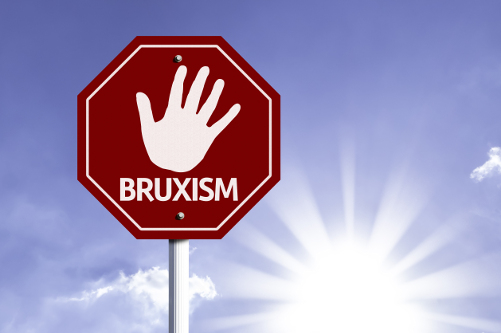
Teeth grinding is a common dental condition that most of us experience at one point or another. In fact, you may not even be aware that you’re doing it. Also referred to as bruxism, teeth grinding is the act of moving the jaw while the teeth are held together. It is estimated that as many as 15 percent of children grind or clench their teeth. The numbers tend to decline with age, with only 3 percent of seniors still dealing with bruxism.
Grinding is often listed in the same category as clenching, though these are not one and the same. Unlike grinding, clenching does not require moving the jaw. Also, grinding of the teeth is something that typically occurs during sleep, whereas clenching is more common during the day when you’re awake. But grinding and clenching can be similarly detrimental to dental health and functionality.
There are a number of things that can cause unnatural grinding or clenching of the teeth. Stress and anxiety are two of the more common causes, but it can also be attributed to things like drug use, sleep apnea or even an improper bite (malocclusion).
If teeth grinding persists unchecked, it can have serious dental consequences. Here are seven common consequences of teeth grinding.
-
1. Flattened Teeth
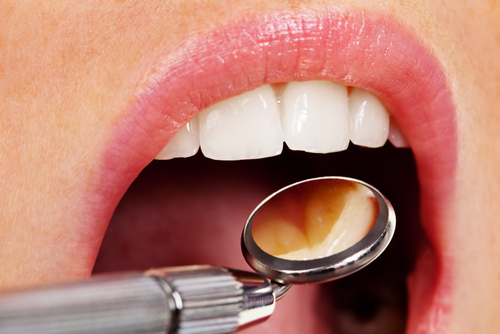
The constant grinding or clenching of the teeth can result in unnatural wear and tear. The upper and lower teeth should glide together smoothly, touching only when you’re chewing food. Tooth on tooth contact can result in significant wear in a relatively short amount of time.
The American Dental Association (ADA) recommends that you visit your dentist twice a year for a checkup. If you keep to this regular maintenance schedule, your dentist should be able to identify unnatural wear and tear in the early stages before too much damage is done.
-
2. Micro-cracks & Broken Fillings
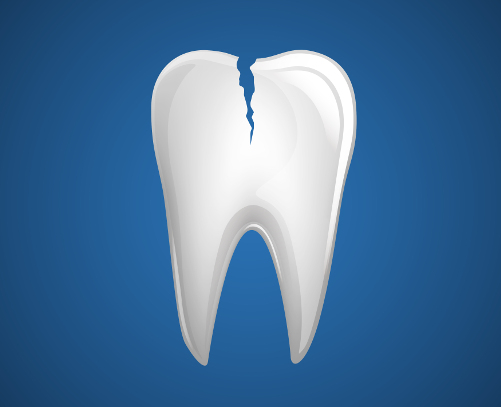
The average person experiences a loss of .3 millimeters of tooth enamel through natural wear and tear every 10 years. Comparatively, it’s not uncommon to see “bruxers” lose as much as 2 millimeters of enamel by their mid-twenties.
The rapid loss of tooth enamel — which strengthens and protects the teeth — leaves you open to issues such as chipping and cracking of the teeth. You may also face increased risk of broken fillings or otherwise damage tooth restorations (such as dental crowns). Untreated, this can eventually lead to nerve damage.
-
3. Tooth Sensitivity

The excessive wear and tear of the teeth caused by grinding can strip the enamel down to such an extent that it exposes dentin, an underlying major component of the tooth. Exposed dentin can cause extreme tooth sensitivity to heat and cold.
Regular checkups should help catch wear and tear caused by grinding before it progresses to such an extent that dentin is exposed.
-
4. Loose Teeth
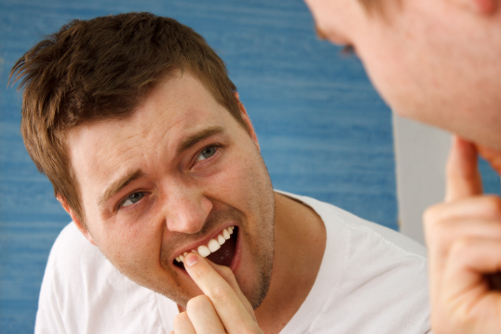
The rocking effect caused by grinding of the teeth can be so extreme that it actually loosens teeth from the jaw bone. In addition to weakening the tooth itself, it can also cause a number of other problems, such as creating pockets along the gum line.
-
5. Gum Recession
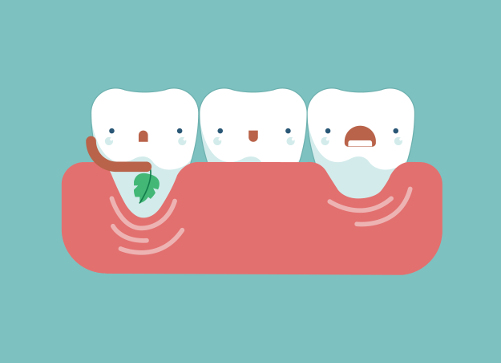
Teeth grinding is a leading cause of gum recession for a number of reasons. In addition to damaging the soft tissue directly, grinding also loosens the teeth and creates pockets along the gum line. Bacteria can lodge in these pockets and lead to gingivitis and periodontitis. Unchecked, this can result in recession which in turn can expose tooth roots and cause other dental problems.
Gum recession can be treated through skin grafts, but depending on the severity of the issue, this can be quite an expensive treatment.
-
6. Headache

Nighttime bruxing can last 40 minutes of every hour slept and produce up to 250 pounds of force per square inch (enough pressure to crack a walnut). In addition to all the other problems caused by grinding, this massive overuse of muscles can lead to pain and discomfort of the jaw, and headaches, including migraines.
-
7. TMJ
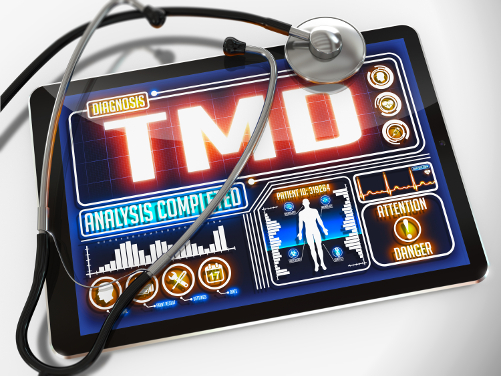
The physical stress that bruxing can put on the jaw can lead to something far more troublesome than occasional jaw pain or headaches. You can actually stress the joint to such an extent that it damages the temporomandibular jaw joint. This is referred to as temporomandibular joint disorder (TMD). The associated pain can be intermittent or constant, affecting one or both sides of the jaw joint. The Academy of General Dentistry (AGD) estimates that roughly 65 to 85 percent of Americans will experience some type of TMD symptom in their life. If you grind your teeth, you can expect your chances to be at the high end of that range.









